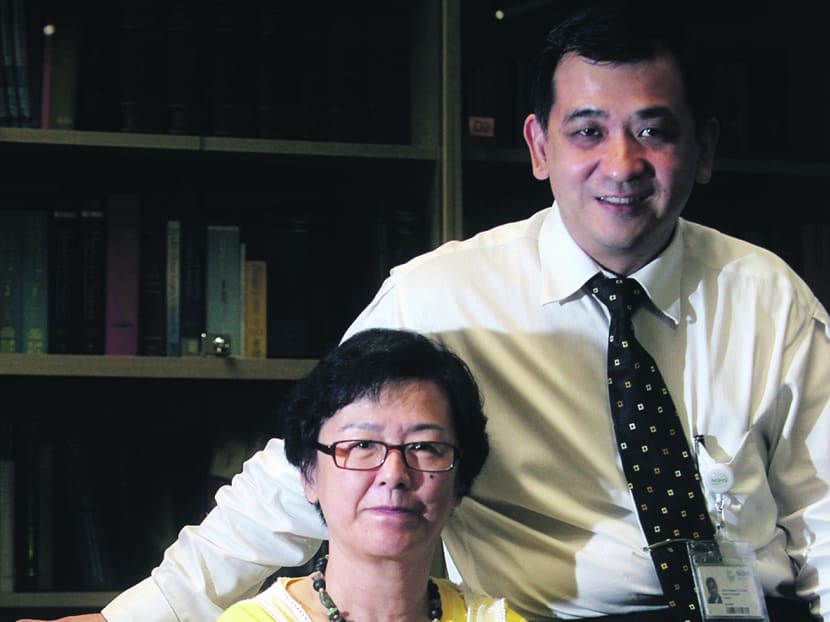Hepatitis B, a silent killer
SINGAPORE — In spite of her busy work schedule, Madam Wan Ching Fang, who discovered that she had chronic Hepatitis B about two decades ago, always finds time for her liver check-ups.

Madam Wan with Assoc Prof Chang. Photo: Ooi Boon Keong
SINGAPORE — In spite of her busy work schedule, Madam Wan Ching Fang, who discovered that she had chronic Hepatitis B about two decades ago, always finds time for her liver check-ups.
Her vigilance saved her life. In 2007, a routine annual screening caught an early-stage tumour in her liver.
“Although I knew I was at risk of liver cancer, I couldn’t believe my ears when I heard the diagnosis. At that time, I still felt totally normal and had no symptoms,” said the 63-year-old teacher.
She has since undergone keyhole surgery to remove the malignant tumour and has passed the five-year survival mark.
In Singapore, about 160,000 people suffer from Hepatitis B, a viral infection that affects the liver. It is the most common cause of liver diseases and liver cancer.
According to Associate Professor Stephen Chang, Senior Consultant at the National University Hospital’s (NUH) division of hepatobiliary and pancreatic surgery, there are two types of Hepatitis B infections — the acute and chronic form.
Patients who experience the acute form after being exposed to the virus may experience symptoms like fever, jaundice and abdominal discomfort. Some may deteriorate rapidly to liver failure or even die.
Chronic cases like Mdm Wan’s, which form up to 75 per cent of the liver cancer cases seen at NUH, usually do not have any symptoms until “years down the road”, said Assoc Prof Chang, who is also the President of the Hepatopancreatobiliary Association (Singapore).
“When symptoms manifest, it usually means that the liver cancer or hardening of the liver (liver cirrhosis) caused by Hepatitis B is in its later stages,” he explained.
However, a 2004 NUH study showed that 64 per cent of chronic Hepatitis B patients do not seek follow-up care although they are aware of their illness. The study involved 387 patients.
Assoc Prof Chang said many of the chronic patients have the misconception that they are fine as long as there are no symptoms.
People tested positive for Hepatitis B are advised to go for six-monthly blood tests as well as six to 12-monthly scans to check for the development of liver tumour.
“There are currently many drugs that can control the virus and drastically reduce the risk of developing liver cirrhosis and cancer,” said Assoc Prof Chang.
“Regular follow-ups can also detect early tumours and cirrhosis, and treatment can be administered with better outcomes.”
In Singapore, the Hepatitis B vaccination was included in the National Immunisation Programme in 1987.
Assoc Prof Chang advised individuals who have not been immunised against the disease to undergo Hepatitis B screening and those who are not already infected should be vaccinated against the disease.





